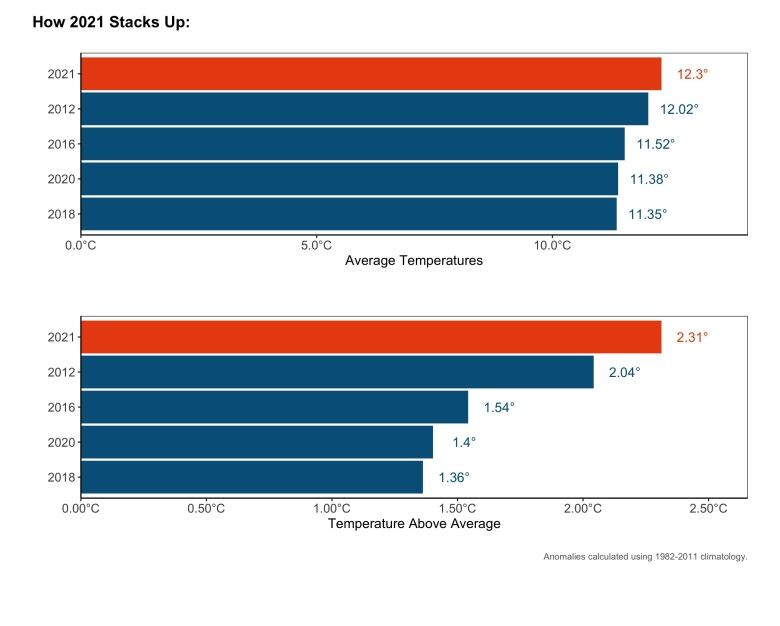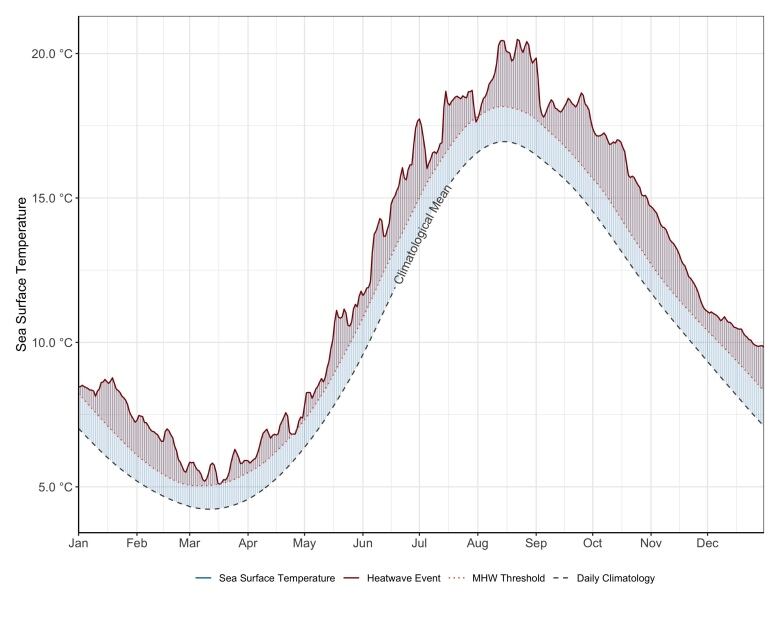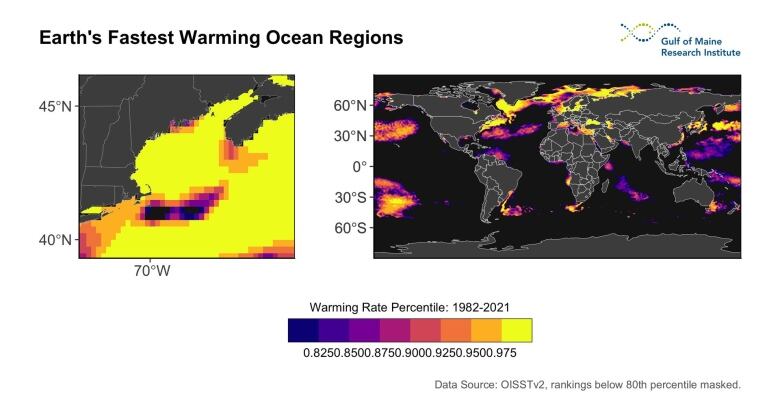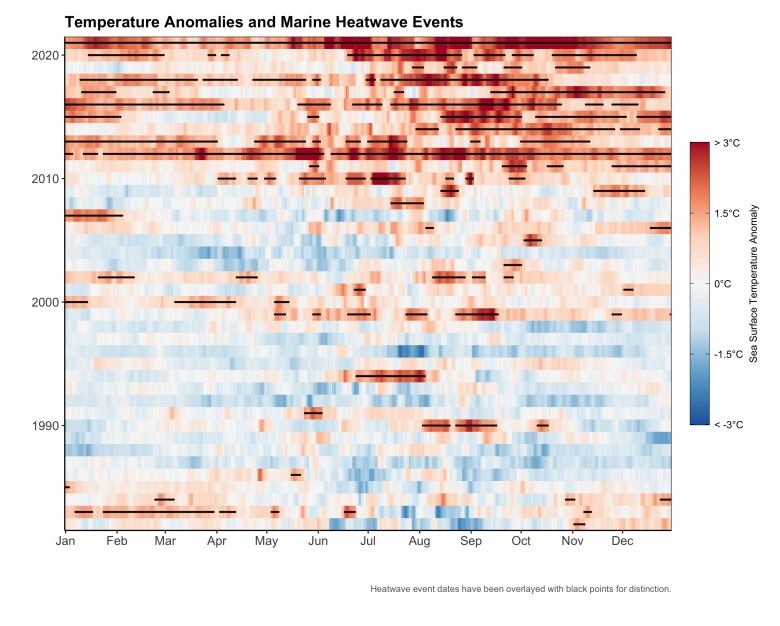2021 was the warmest year on record in the Gulf of Maine
Sea surface temperatures in the Gulf of Maine were more than two degrees above average

Our planet is changing. So is our journalism. This story is part of a CBC News initiative entitledOur Changing Planetto show and explain the effects of climate change and what is being done about it.
2021 was one of the warmest years on record across the Maritimes and northeast United States.
While many locations in the region finished in the Top 5, the temperature recorded in Yarmouth, N.S., was the warmest on record, topping both 1999 and 2012. Records date back to 1879.
One big contributing factorfor Yarmouth's record temperatureswas offshore in the Gulf of Maine, where sea surface temperatures were also the warmest on record.
Scientists at the Gulf of Maine Research Institute say that temperatures in the gulf averaged 12.3 C in 2021, which is more than two degrees above the average and tops the previous record set back in 2012.

2021 was truly a remarkable year in the Gulf of Maine.
An annual time series of daily average sea surface temperatures shows that the gulf reached "marine heatwave" criteria for 360 of the 365 days last year.
A marine heatwave is defined as a period when there are five or more consecutive days when the observed sea surface temperature is greater than 90th percentile of the average for that day.

Gulf of Maine Research Institute research was the first to sound the alarm back in 2014 that the Gulf of Maine is warming faster than the vast majority of the oceans in the world, and not surprisingly that trend continues.
The rate of warming continues to be high not only in the Gulf of Maine, but along the entire Atlantic coastline of Nova Scotia.

Historically, the cooler Labrador current moving southward has kept the warmer waters of the Gulf Stream out to sea. However, the study points out that with climate change, more melted sea ice and fresh water is constricting the flow of the Labrador current and allowing the warmer water from Gulf Stream to "spill over" into the Gulf of Maine.
The research also points to the North Atlantic Oscillation, or NAO, which is a large-scale pattern that varies in our atmosphere. The study says it's been a positive phase more frequently over the past 10-15 years, which is resulting in less Arctic air masses moving into the region.

The scientists say this rate of change inthe gulf and our surrounding ocean temperatures can have profound consequences for the biology of ocean species and entire food chains.
The continuedwarming of our surrounding ocean waters ishaving an impact on our temperatures back here on land as well. Thosewarmer bodies of water releaselatent heatinto the atmosphere, even when air temperatures drop at night and in the fall and winter seasons.
The list of thetop 10 warmest years on record in the Maritimesis now almost exclusively filled with years since 1999.













_(720p).jpg)


 OFFICIAL HD MUSIC VIDEO.jpg)
.jpg)



























































































